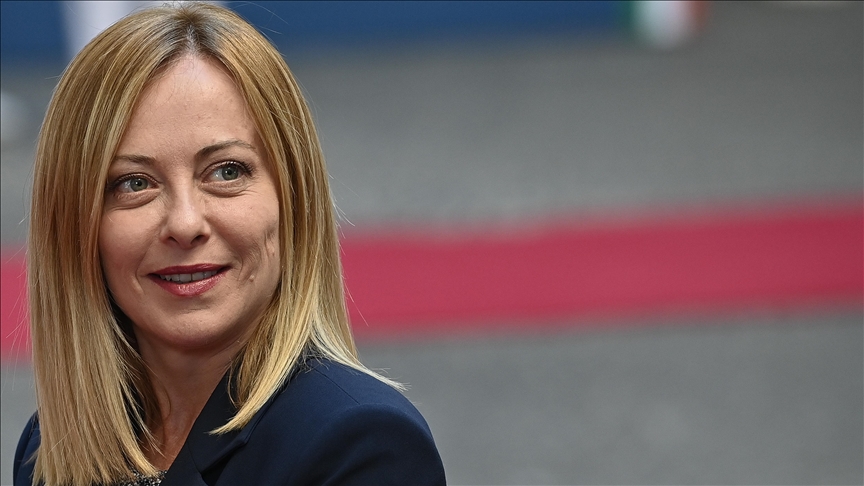Italian Premier Meloni's visit to Serbia signals Rome's push to bring Belgrade closer to EU
Giorgia Meloni meets with Serbian President Aleksandar Vucic to discuss Belgrade's EU accession process, cooperation with NATO

ROME
Italian Prime Minister Giorgia Meloni met with Serbian President Aleksandar Vucic in Belgrade on Tuesday afternoon, signaling Rome’s strategic push to bring Serbia closer to the European Union.
Italy is positioning itself as a regional hub, leveraging longstanding ties and projects such as the Pan-European Corridor 10, which connects Austria to Greece via Serbia.
Vucic announced the visit on his Instagram page, emphasizing that it is a message of trust and a shared vision for the future of a united Europe, as well as a show of strong support for Serbia.
The discussion focused on Serbia’s EU accession process and its cooperation with NATO. Meloni last visited Belgrade in late 2023, when she and Vucic discussed geopolitical developments, the regional situation, bilateral cooperation, and Serbia’s European trajectory.
Serbia greatly values “its relations with Italy, not only as a political partner, but also as a true friend who understands our values, traditions, and aspirations. Serbia and Italy stand shoulder to shoulder on the path of development and stability for the entire region,” Vucic wrote on Instagram.
The region’s future will shape Brussels’ policies on energy infrastructure, migration flows along the Balkan route, and Italy’s role as a pivotal player in regional stability.
This is happening amid broader crises in Gaza and Kyiv, plus unresolved tensions between Serbia and Kosovo.
The trip, which was postponed from January due to Serbia's political turmoil, was a clear indication that Rome wants to restart a constructive dialogue.
Serbia is critical for a number of reasons, including reform progress that is consistent with EU values. It can help neighboring countries align with European defense frameworks and provide economic opportunities to strengthen commercial ties. It is also critical to prevent irregular migration along the Balkan corridor.
Rome's diplomatic efforts focus on EU enlargement and seek to counter China and Russia's growing influence in the Western Balkans. This is especially important in NATO, where stabilizing conflict zones such as Kosovo is a top priority.








